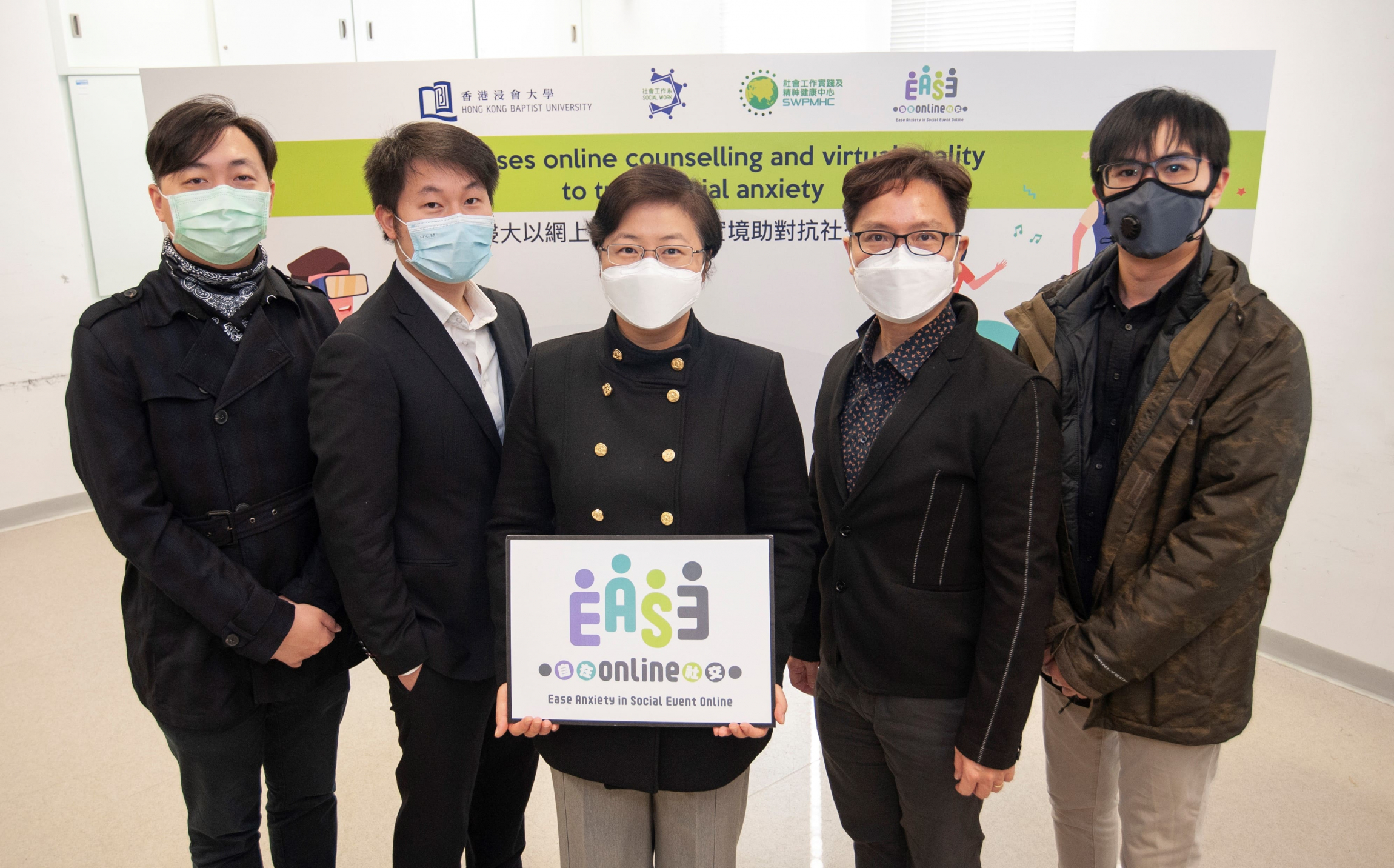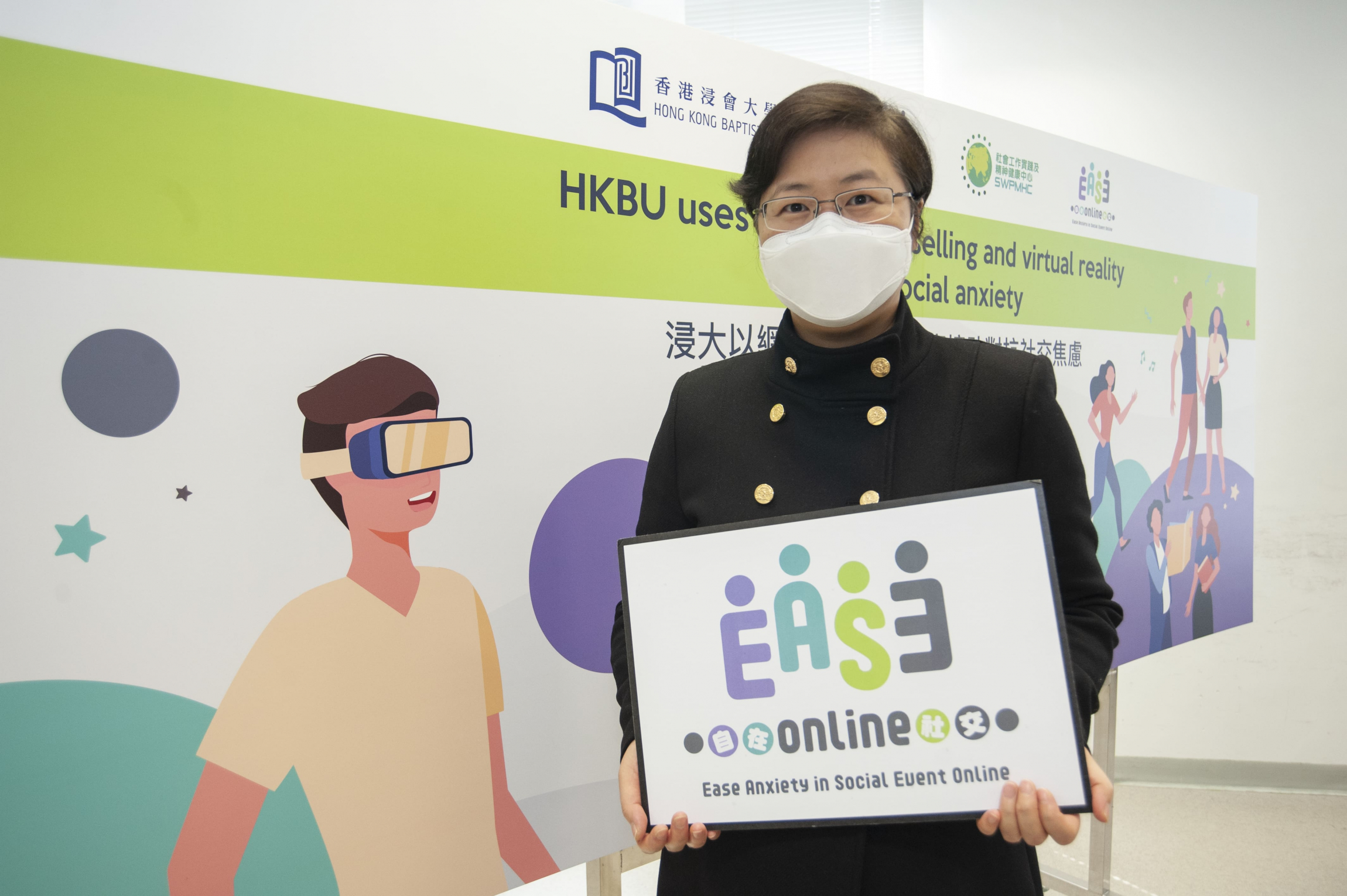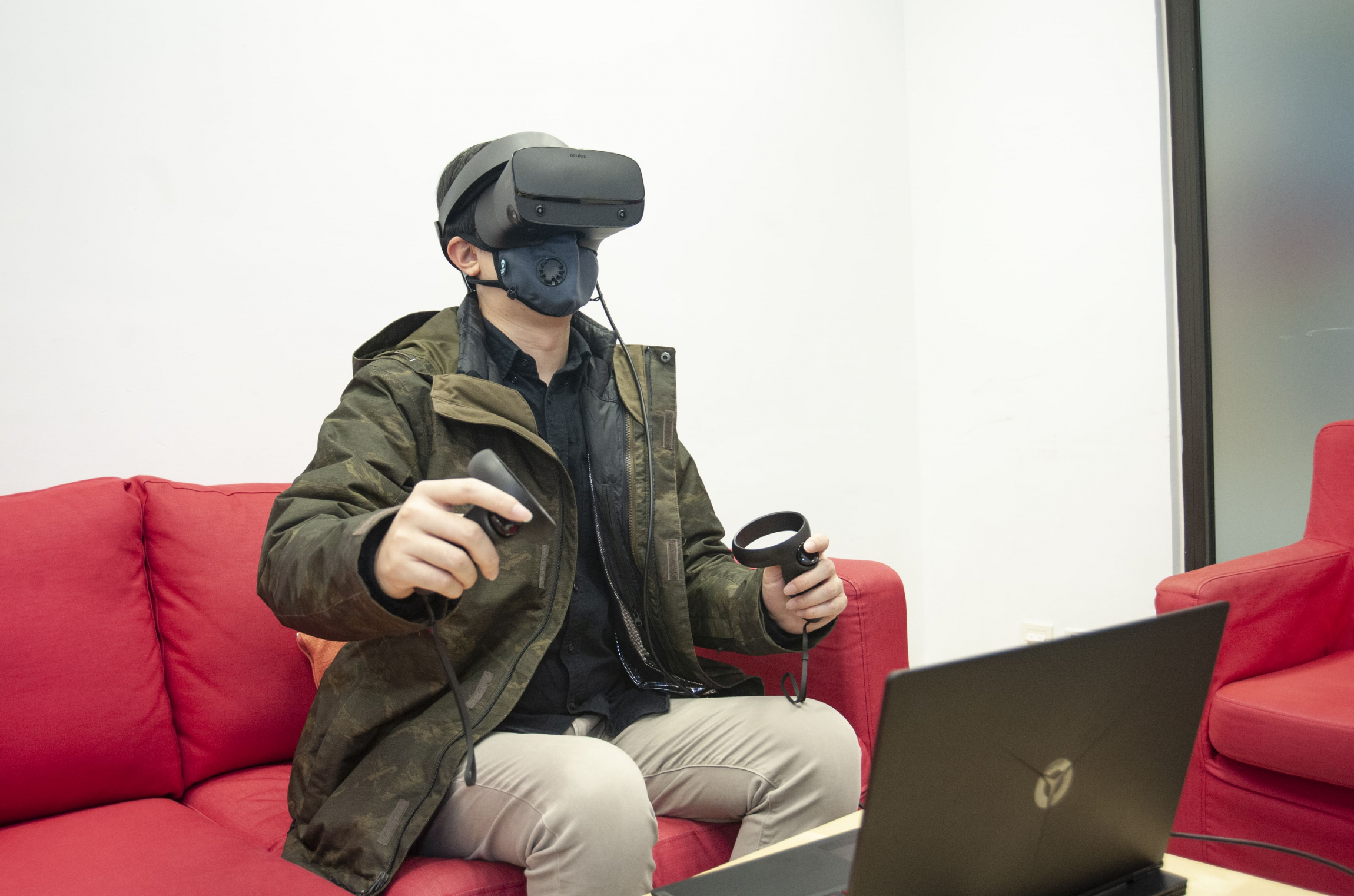Press Release
HKBU-led team uses online counselling and virtual reality to treat social anxiety
Monday, 18 Jan 2021
A Hong Kong Baptist University-led (HKBU) research team has launched an online cognitive behavioural therapy (CBT) programme named "EASE Online" to help people with social anxiety disorder (SAD). It incorporates virtual reality (VR) scenarios that are common triggers for social anxiety, allowing participants to respond as they would to real-life situations and receive counselling services from mental health professionals.
The programme is recruiting 600 participants aged 18 to 70 with social anxiety disorder. It will also provide training to around 100 local mental health professionals on how to operate the programme, with the aim of serving more people in need in the long run.
Blended mode of counselling to treat social anxiety disorder
People with social anxiety disorder are characterised by excessive fear and anxiety which are disproportionate to the social situations they encounter, such as meeting someone new, eating or even making phone calls in public. This overwhelming fear can keep them away from social contact and prevent them from seeking counselling services.
Dr Pan Jiayan, Associate Professor of the Department of Social Work at HKBU, who led a team comprising investigators from the Department of Social Work and the Department of Computer Science at HKBU, has developed a 13-week programme named "EASE Online" to help them cope with social anxiety and improve their quality of life with CBT. CBT is a goal-oriented psychotherapy that helps people cope with life challenges by adjusting their patterns of thinking or behaviour.
Having started in 2020, the four-year EASE Online programme will run until 2023. It adopts a blended mode of service delivery including both online and offline counselling. The online service comprises nine weekly online modules delivered on the programme website or mobile app. The online modules include a CBT skills briefing, case demonstration videos, exercises and feedback, a forum and self-assessment.
Integration of VR exposure therapy
The counsellor will provide three face-to-face sessions plus two telephone follow-ups to supplement the online service and review the service progress. VR exposure therapy will be adopted in two out of the three face-to-face sessions. The research team designed five VR environments that reflect real-life scenarios, such as giving a presentation and attending a job interview, for participants to experience the anxiety and fear associated with such settings. These scenarios are designed by the research team and delivered in Cantonese, which are adapted and produced from local cases to fit the language and cultural context of Hong Kong.
Therapist-guided VR exposure therapy is an intermediate treatment step for SAD clients that exposes them to real-life social situations. A trained counsellor will guide participants in person throughout the exposure process and provide a debriefing for them on a variety of strategies as well as advice on how to tackle social anxiety.
In order to evaluate the effectiveness of the programme, participants need to fill in an online questionnaire upon completion of the programme, and at three- and six-month follow-ups, respectively.
Novel alternative tackles social anxiety
"Social anxiety disorder sufferers feel more than just shy or nervous in certain social circumstances. Their difficulty in building up good social and interpersonal relationships brings them unspeakable pain," said Dr Pan.
"Online counselling and VR exposure therapy create a safe and non-threatening environment for people with social anxiety to learn how to cope with fearful social situations. It is especially suitable for those who do not want to be stigmatised by society or cannot afford traditional face-to-face counselling services. We hope that the EASE Online programme will bring SAD sufferers' social life back on track," Dr Pan added.
The programme is supported by a grant of more than HK$6 million from the Research Impact Fund of the University Grants Committee and HKBU. Besides investigators from HKBU, the EASE Online programme team also includes researchers from the Department of Psychology at Stockholm University, and the programme has also partnered with the Richmond Fellowship of Hong Kong and the Caritas Wellness Link – Tsuen Wan.
The EASE Online programme is now recruiting participants. Registration and participation in the programme are free of charge. Further details can be found on the programme webpage (https://easeonline.hkbu.edu.hk). Those who are interested can call 3411 5686 or email easeonline@hkbu.edu.hk for enquiries.


